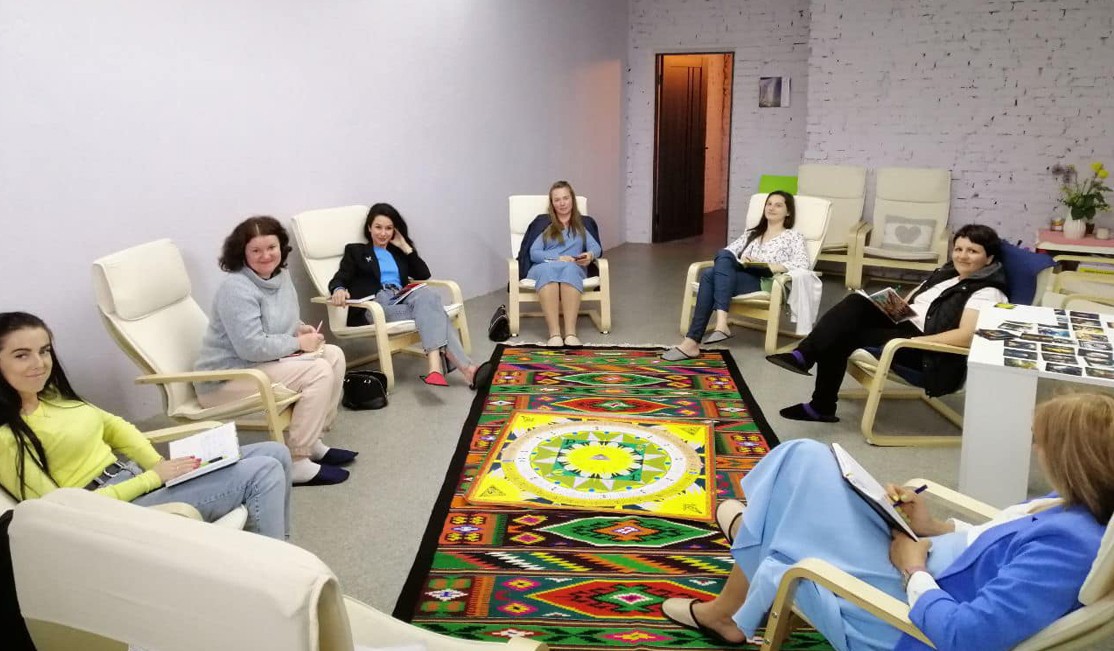Transformational games

Body-oriented psychotherapy
10.10.2022
Metaphorical associative maps
10.10.2022
Transformational games (T-games) are a psychological tool that helps you find deep answers to your questions in an easy and relaxed way, transform (transform) negative attitudes, beliefs, and statements into positive and constructive ones.
T-games are similar to board games. As a rule, there are chips, a dice, a playing field, rules, a start, and a finish. However, they can vary depending on the tasks and the author’s intent.
A person formulates a query (a question that interests him or her) and receives answers to it during the game. He or she rolls a dice, makes a move, looks at the sector that has fallen out, what is written there, and analyzes how it relates to his or her life and current situation.
This is where metaphor and associations come into play. When reading a phrase or phrase combination, the client understands it in their own way, depending on what they have inside.
For example, a client asks: “What do I overlook when achieving my goal?”. And he gets a sector in the game with the word: “Support”. We begin to explore: what is support for him? Does he feel it in his life? If not, from whom would he like to receive it? Or is it there, but the client doesn’t notice it? What can be done to change (transform) this? This is just a small part of how it works.
Psychological play is the best way to try to do something you’ve never done before. For children, play is a natural process; it is a way of learning about the world, gaining new experiences, and developing spiritual and physical strength.
Adults are the same children at heart. Despite our age, we have the same “basic settings”: it is easier and faster for us to perceive new experiences – whether it is mastering skills or rethinking our life strategy – through play.
It is believed that the first transformational game was invented by Tibetan monks many centuries ago.
They “sewed” the laws of the universe that govern human life onto a 64-square board. Walking through the squares and receiving hints from the game, a person made important decisions, realized what steps led them to certain circumstances, and what would help them change themselves and their lives for the better.
This tool can be used to work with various requests and problems. T-games are good at “highlighting” those moments that are relevant right now. While psychotherapy can take many sessions (meetings) to get a result, in a game we can get it in 1 time!



